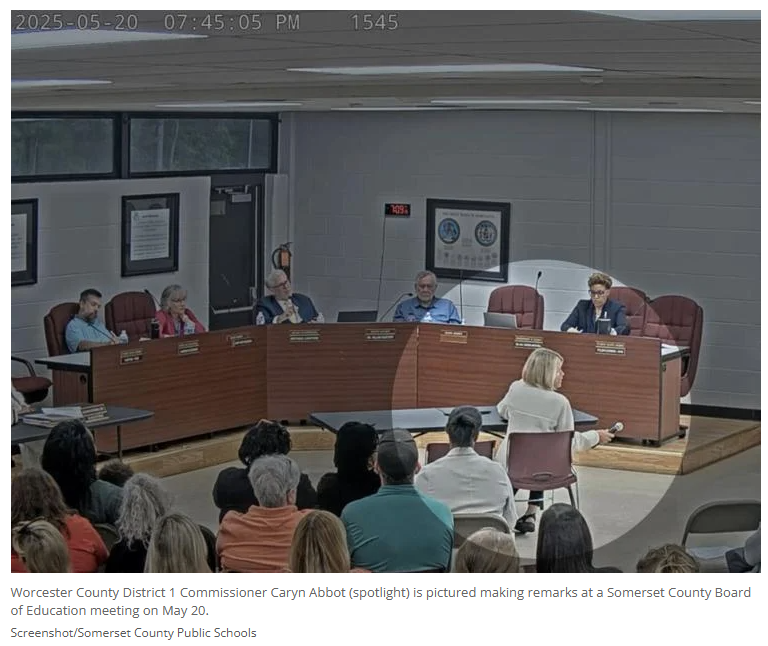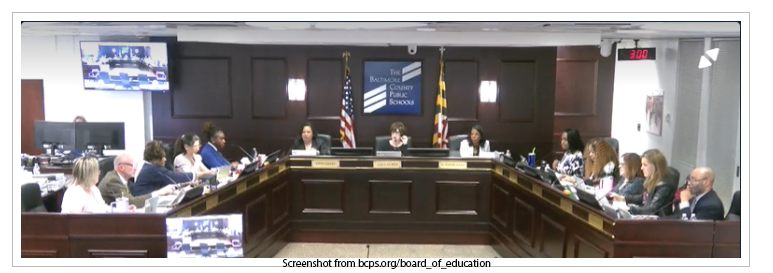
Does Parent Involvement Really Help Students? Here’s What the Research Says
Parental involvement has been a top priority for school leaders for decades, and research shows that it can make a major difference in student outcomes.
But a parents’ rights movement that has captured headlines over the past few years and become a major political force has painted a particular picture of what parents’ involvement in their children’s education looks like.
Policies that have passed in a number of individual school districts, states, and the U.S. House have spelled out parents’ rights to inspect curriculum materials and withdraw their children from lessons they deem objectionable; restricted teaching about race, gender identity, and sexuality; and resulted in the removal of books from school libraries, including many with LGBTQ+ characters and protagonists of color.
The parents’ rights movement has been divisive and attracted the ire of some teachers who feel censored. But it has also opened up the conversation around parent involvement in school, said Vito Borrello, executive director of the National Association for Family, School, and Community Engagement.
And that’s a good thing, he said.
“The parents’ rights bills in and of themselves, I wouldn’t suggest are entirely focused on best practice family engagement,” said Borrello, whose group works to advance effective family, school, and community engagement policies and practices. “However, what the parents’ rights bills have done is elevated the important role that parents have in their child’s education.”
For decades, research from around the world has shown that parents’ involvement in and engagement with their child’s education—including through parent-teacher conferences, parent-teacher organizations, school events, and at-home discussions about school—can lead to higher student achievement and better social-emotional outcomes.
Here are five takeaways from the research.
1. Studies show more parental involvement leads to improved academic outcomes
When parents are involved in their children’s schooling, students show higher academic achievement, school engagement, and motivation, according to a 2019 American Psychological Association review of 448 independent studies on parent involvement.
A 2005 study from researchers at the Johns Hopkins University Center on School, Family and Community Partnerships, for example, showed that school practices encouraging families to support their child’s math learning at home led to higher percentages of students scoring at or above proficiency on standardized math tests.
And research shows that parent involvement with reading activities has a positive impact on reading achievement, language comprehension, and expressive language skills, as well as students’ interest in reading, attitudes toward reading, and level of attention in the classroom, according to a research summary by the National Literacy Trust.
“When parents become involved at school by, for example, attending events such as open houses or volunteering in the classroom, they build social networks that can provide useful information, connections to school personnel (e.g., teachers), or strategies for enhancing children’s achievement,” the APA research review said. “In turn, parents with heightened social capital are better equipped to support their children in succeeding in school as they are able to call on resources (e.g., asking a teacher to spend extra time helping their children) and utilize information they have gathered (e.g., knowing when and how their children should complete their homework).”
2. Parent involvement changes social-emotional outcomes, too
The APA study showed that not only does parental involvement lead to improved academic outcomes, but it also has a positive impact on students’ social and emotional skills and decreases instances of delinquency.
That finding also applies internationally.
A 2014 International Education Studies report on parental involvement among 9th and 10th graders in Jordan showed that parental involvement had a positive impact on students’ emotional engagement in school. That means students with more involved parents are more likely to have fun, enjoy school, have high self-esteem, and perceive school as a satisfying experience.
And when parents visit their children’s school, that contributes to a sense of safety among the students, ultimately improving school engagement, the study said. Although conducted in Jordan, the study provides insight into how parental involvement affects students’ social-emotional development in other countries, including the United States.
Parent involvement also gives teachers the tools to better support their students, Borrello said.
“When teachers understand what their students are going through personally and at home and any challenges they may have, then that improves their teaching,” he said. “They’re able to support their student in ways they wouldn’t be able to otherwise.”
3. Not all parental involvement is created equal
Different levels and types of parent involvement led to varying outcomes for students, according to the American Psychological Association study.
For example, school-based involvement, such as participation in parent-teacher conferences, open houses, and other school events, had a positive impact on academics in preschool, middle school, and high school, but the size of the impact was much lower in high school than in preschool. That may be because parents have fewer opportunities to be involved in the high school environment than in younger students’ classrooms where parents might volunteer.
At-home discussions and encouragement surrounding school also have a positive impact on students’ academic achievement at all developmental stages, with that type of parent involvement being most effective for high schoolers, according to the study. Reading with children and taking them to the library have a positive impact as well.
But one common form of parental involvement, helping kids with their homework, was shown to have little impact on students’ academic achievement.
In fact, homework help had a small negative impact on student achievement, but positive impacts on student motivation and engagement in school, according to the APA study.
The research shows the value of encouraging parents to be involved in their student’s learning at home, and not just attending school events, Borrello said.
“In the past, schools either had an event that wasn’t connected to learning or only measured the engagement of a family based on how often they came to the school,” he said. “What families are doing to create an environment of learning and supporting learning at home, is probably even more important than how many times they’re coming to school.”
4. Results of parent involvement don’t discriminate based on race or socioeconomics
Research has shown a consensus that family and parent involvement in schools leads to better outcomes regardless of a family’s ethnic background or socioeconomic status.
Parent involvement has led to higher academic outcomes both for children from low and higher socioeconomic status families.
When comparing the impact of parent involvement on students of different races and ethnicities, the APA found that school-based involvement had a positive impact on academics among Black, Asian, white, and Hispanic children, with a stronger impact on Black and white families than families from other demographics. The finding also extended internationally, with similar effects on children outside of the United States.
5. Schools can encourage parent involvement in person and at home
Parent involvement doesn’t have to end with parent-teacher conferences. There are many ways for schools to encourage parents to be more involved both in school and at home, Borrello said.
The best way to start, he said, is by creating a school culture that is welcoming to families.
“That starts with the principal, and that starts with school leadership that is welcoming to families, from how they’re engaging parents in the classroom to what policies they have in schools to welcome families,” Borrello said.
Parent gathering spaces or rooms in school buildings, scheduled parent engagement meetings and office hours, and at-school events held outside of the school day are all good places to start, Borrello said. From there, schools can work to include parents in more decision-making, give parents resources to support learning at home, and equip teachers with the tools to engage and connect with parents.
“If the school is not welcoming and families don’t feel welcome at the school, then you’re not going to get them to come to school no matter what you do,” Borrello said. “Then it’s really thinking about who you’re creating those relationships with families so that they can be heard.”
Dig Deeper With Our Longreads
Newsletter Sign up to get our best longform features, investigations, and thought-provoking essays, in your inbox every Sunday.
The MEN was founded by John Huber in the fall of 2020. It was founded to provide a platform for expert opinion and commentary on current issues that directly or indirectly affect education. All opinions are valued and accepted providing they are expressed in a professional manner. The Maryland Education Network consists of Blogs, Videos, and other interaction among the K-12 community.








